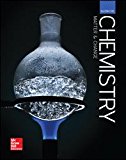
Interpretation: In the given experiment, a feature that should be kept constant needs to be identified. Also, the reason to keep this feature constant needs to be explained.
Concept introduction: The action of measuring the size or quantity of anything is defined as a measurement. A measure of hotness plus coldness of something is described as temperature.
A quest to discover the solution to a question by practicing the scientific method (or process) is described as a scientific investigation or experiment.
Features that should be constant are the volume of water, the temperature of the water, and the mass of added sugar. To receive an accurate result of the experiment, it is important to keep these features constant.
A variable being measured (or tested) in a scientific investigation\experiment is called the dependent variable. A variable that is controlled in a scientific experiment/investigation to examine the effects on the dependent variable is called an independent variable.
In the given experiment, the amount of time needed for dissolving is defined as a dependent variable. In short, it is the amount of period needed for dissolving. The quantity of sugar (crushed) before it is added, is defined as an independent variable.
Sugar cubes, sugar crystals, or crushed sugar (particle size) are independent variables whereas, the rate of dissolving sugar is the dependent variable. So, the volume of water, the temperature of the water, and the mass of added sugar are the features that should be constant. Otherwise, the outcome of the experiment will vary.
In any experiment, if factors are not constant (or keep changing), then the researcher (or scientific investigator) will not be able to evaluate the effect and outcome of that experiment.
In any scientific investigation, factors have to be constant. If factors will be not constant, then it may change the outcomes of that scientific investigation.
Chapter 1 Solutions
Glencoe Chemistry: Matter and Change, Student Edition
 ChemistryChemistryISBN:9781305957404Author:Steven S. Zumdahl, Susan A. Zumdahl, Donald J. DeCostePublisher:Cengage Learning
ChemistryChemistryISBN:9781305957404Author:Steven S. Zumdahl, Susan A. Zumdahl, Donald J. DeCostePublisher:Cengage Learning ChemistryChemistryISBN:9781259911156Author:Raymond Chang Dr., Jason Overby ProfessorPublisher:McGraw-Hill Education
ChemistryChemistryISBN:9781259911156Author:Raymond Chang Dr., Jason Overby ProfessorPublisher:McGraw-Hill Education Principles of Instrumental AnalysisChemistryISBN:9781305577213Author:Douglas A. Skoog, F. James Holler, Stanley R. CrouchPublisher:Cengage Learning
Principles of Instrumental AnalysisChemistryISBN:9781305577213Author:Douglas A. Skoog, F. James Holler, Stanley R. CrouchPublisher:Cengage Learning Organic ChemistryChemistryISBN:9780078021558Author:Janice Gorzynski Smith Dr.Publisher:McGraw-Hill Education
Organic ChemistryChemistryISBN:9780078021558Author:Janice Gorzynski Smith Dr.Publisher:McGraw-Hill Education Chemistry: Principles and ReactionsChemistryISBN:9781305079373Author:William L. Masterton, Cecile N. HurleyPublisher:Cengage Learning
Chemistry: Principles and ReactionsChemistryISBN:9781305079373Author:William L. Masterton, Cecile N. HurleyPublisher:Cengage Learning Elementary Principles of Chemical Processes, Bind...ChemistryISBN:9781118431221Author:Richard M. Felder, Ronald W. Rousseau, Lisa G. BullardPublisher:WILEY
Elementary Principles of Chemical Processes, Bind...ChemistryISBN:9781118431221Author:Richard M. Felder, Ronald W. Rousseau, Lisa G. BullardPublisher:WILEY





